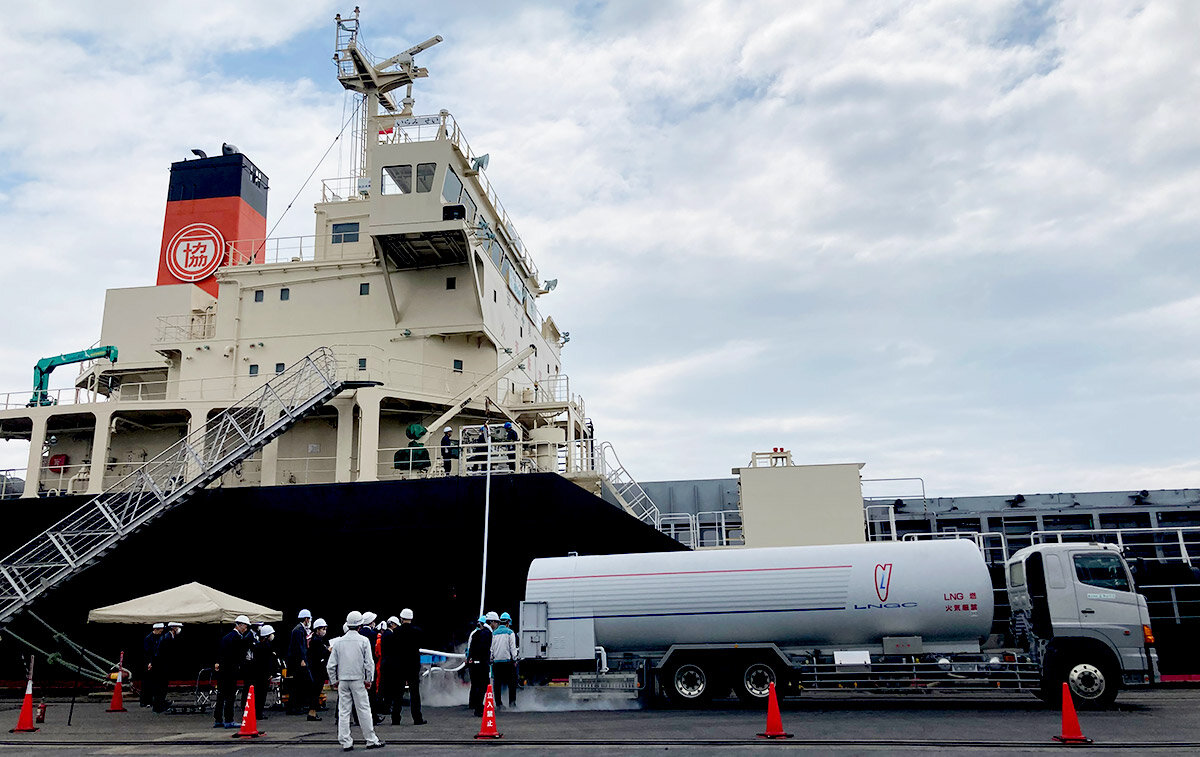Japan’s shipping giant MOL and partners have completed a bio-LNG trial with the LNG-powered coastal bulk carrier, Ise Mirai, in Ise Bay.
According to a joint statement released on Wednesday, this marks Japan’s first use of “carbon-neutral” LBM, or bio-LNG, derived from biomass.
Besides MOL and its unit MOL Coastal Shipping, other partners in the project were Air Water, Techno Chubu, Cenergy, IHI Power Systems, Jera, and Kyoudou Kaiun.
The 2020-built bulker Ise Mirai belongs to a joint venture consisting of MOL’s coastal shipping unit, Chubu Electric’s unit Techno Chubu, and Kyoudou Kaiun.
In the trial, Air Water supplied LBM produced from cattle manure in the Tokachi region of Hokkaido as part of a technology development and demonstration project adopted by Japan’s Ministry of the Environment.
In October 2022, Air Water started operation of what it says is the first plant in Japan to produce LBM.
All the parties involved confirmed through ocean transport of Jera’s cargo that LBM can be transported through the existing domestic LNG supply chain, truck-to-ship bunkering of LBM can be completed using existing LNG tank trucks, and LBM can be used by existing vessel (Ise Mirai) as marine fuel, the statement said.
MOL and Air Water said they will continually contribute to the development of low-carbon and decarbonized ocean transport by leveraging each other’s knowledge and experience in the use of LBM as marine fuel.
The two firms joined forces in February to study the use of LBM in MOL’s LNG-powered vessels.
MOL is building a fleet of LNG-powered vessels as part of its plans to slash emissions, and this year it placed in service Japan’s first two LNG-powered ferries.

